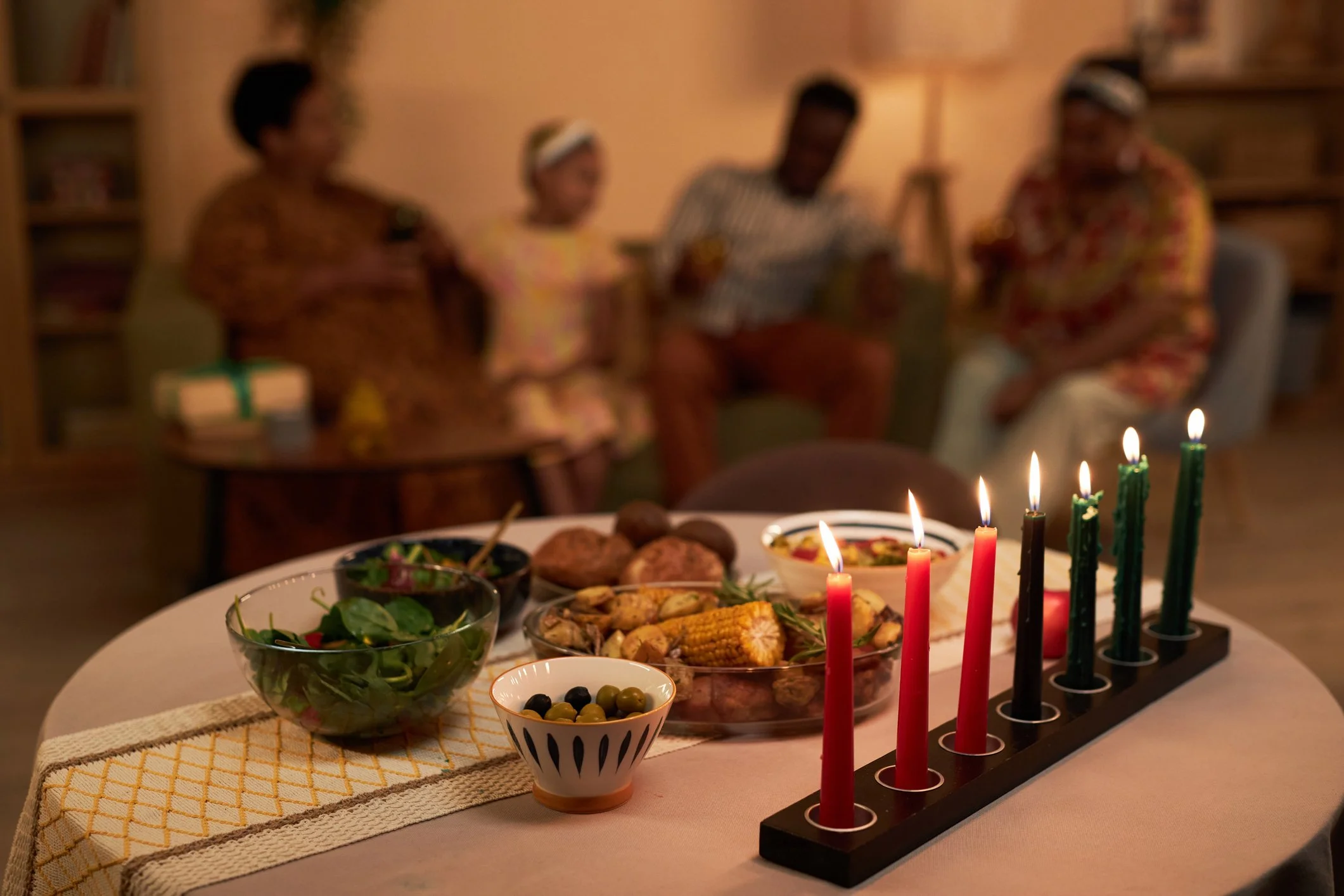12 Ways to Navigate Holiday Stress and Enjoy the Season
Holiday stress is hard to avoid. It’s a time of the year that often forms a perfect storm of social and family obligations, financial pressure and high expectations—a combination of stressors that would put a strain on anyone’s mental health.
That’s why we’ve put together 12 tips to help you navigate holiday stress, so that you can spend less time worrying and more time enjoying the cozy nights, crisp air and festive spirit of the season.
Why are the winter holidays so stressful?
The winter season is synonymous with family and social gatherings for many—and complex family dynamics or travel needs can lead to exhaustion and anxiety. When you add the financial pressure of buying gifts, ingredients or decorations to the mix, the pressure can start to build.
The root cause of the issue could be explained by the high expectations society has set for this time of the year, through idealized movie scenes and the unrealistic desire for a “perfect” celebration. But don’t worry, if you feel like you’re stuck in an anxiety loop every time the holidays come around, we’ve got some helpful methods you can use to alleviate your stress and fully enjoy the holidays.
12 Ways To Make The Holidays Less Stressful
1.Adjust Traditions
What holiday traditions genuinely bring you joy? Which ones feel like obligations? Once you’ve determined those, work with your family (or close friends) towards focusing on the ones that create positive memories and meaningful moments.
Encourage discussions around simplifying or updating traditions to ease stress. You may even consider merging or skipping certain events if they feel overwhelming or unnecessary, to allow for a more relaxed and enjoyable season.
2. Set Realistic Expectations
Don’t strive for a “perfect” holiday, or you might feel a sense of heightened disappointment when things don’t pan out exactly the way you had planned. Instead, set achievable goals for gift-giving, hosting and decorating to reduce the pressure on yourself.
Be sure to communicate your expectations with family members and friends to make sure that everyone is on the same page, so that you can better manage disappointments and surprises.
3. Delegate Tasks
Don’t be afraid to share responsibilities—such as meal prep, decorating, or organizing gatherings—with family and friends. Get children and younger family members involved by assigning them age-appropriate tasks, which can also help them feel empowered.
If you’re hosting a gathering, you could suggest a potluck-style meal so that everyone contributes to the meal, instead of the onus falling on just you (especially if you’ve invited a lot of people).
4. Plan Ahead
By starting your preparations early, you’ll feel more in control, which may help alleviate your holiday stress. You can create a shopping list, organize a budget and map out key events to stay on top of everything.
Rather than wrapping all the gifts at once for example, you can break down the task into smaller steps and wrap a few gifts each day. Keep a checklist to track your completed tasks so that you feel a sense of accomplishment each time you tick off a completed task.
5. Practice Mindful Eating
This is easier said than done when there is often so much delicious food to feast on throughout the holidays. But being conscious of your eating habits during holiday gatherings can help avoid overeating and post-meal guilt. Try to enjoy treats in moderation and savor each bite. If you can, take a break between servings.
6. Limit Social Media Use
This ties into the unrealistic expectations we set ourselves during the holidays. Many people will be sharing highly curated content on social media that may make you feel worse about the way you’re spending your holidays. Just remember that comparison is the thief of joy, and set time limits or specific times of day to check in on social media so that you can be more present with loved ones.
Whenever the urge arises to indulge in some screen time, replace it with real-life connections if you can, like calling or visiting friends or family in person. This will help you feel more present and connected to loved ones.
7. Budget Mindfully
It can be so easy to lose track of expenses during the winter holidays. By creating a mindful budget for gifts and tracking your expenses, you won’t cause yourself preventable financial stress by accidentally overspending. Prioritize meaningful gifts or experiences over expensive items, and explore DIY gift options (like baking, crafting, etc) to make them more personal.
8. Create Free Time
Don’t shy away from carving out some dedicated “me-time” throughout the holiday season to help unwind and avoid holiday fatigue. Use this time to do whatever you feel like doing, whether it’s going for a walk, having a quiet morning coffee or a relaxing bath. Let your loved ones know that you need some alone time during the holidays so that you can prioritize your mental wellness and set healthy boundaries.
9. Prioritize Self-Care
Daily wellness routines such as regular exercise, meditation, journaling or stretching can help manage your mood, release stress and keep you grounded. Although sleep patterns can be affected by social gatherings, try to maintain healthy sleep habits throughout the season, as restful sleep is crucial for physical and emotional resilience.
10. Say No When Necessary
Saying no can feel tricky—even impossible sometimes. But it’s important to recognize your limits and feel empowered to decline invitations or tasks that could lead to burnout. You might want to practice saying no politely but firmly, and explaining that your goal is to keep the holidays enjoyable and balanced. Don’t feel guilty about prioritizing your well-being: a peaceful holiday is more valuable than a packed schedule.
11. Focus on Experiences Over Gifts
Shared experiences like cooking a meal together, visiting a holiday market or volunteering can be a lot more special and memorable than an expensive gift. Create fond memories through meaningful activities such as family movie nights, baking, or crafting holiday decorations together, and consider creating gift vouchers for experiences (like going on a day trip, or to a concert) rather than purchasing a physical gift.
12. Reflect with Gratitude
Start or end each day by noting three things you’re grateful for—this can help shift your focus to the positive aspects of the season. You can also extend this activity to your friends and family by, for example, asking everyone to share what they’re thankful for around the dinner table.
You could even keep a holiday gratitude journal to capture memories and reflections to remind yourself of the joys of the season.
That wraps up our list of 12 mental health tips for the holidays! We hope you find value in some of this advice, and are able to better enjoy the upcoming holiday season.
If you’re feeling overwhelmed this holiday season our registered counsellors and psychologists are here to help you find calm and joy. Book an appointment today to start the journey toward a stress-free holiday.
For further helpful articles on mental health, read on here.






















